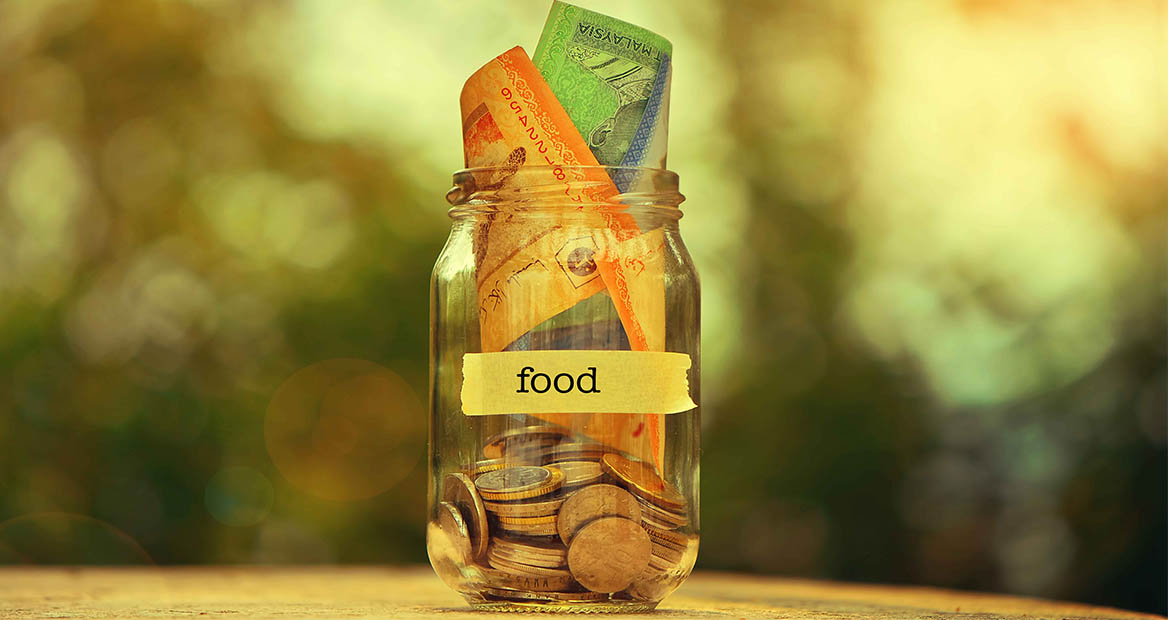Food security in an increasingly globalised world
The problem of food security is once again rearing its head as food prices increase very soon after the last spike in 2008. The latest Food Price Watch published by the World Bank confirmed that food prices rose by 29 percent in January 2011 from a year earlier. These sharp movements in food prices are indicative of unstable supplies from traditional sources.
In many parts of the world today mechanisms for food production, storage and distribution have not been developed in tandem with rapid population growth resulting in poverty and famine in the worst cases. These countries face problems of inadequate food production, insufficient food supplies and inefficient food delivery systems. They currently depend on substantial food imports which pose a major drain on the national economy.
The problem is more acute in the Muslim world in what is seen as a food security paradox. On one hand we have many Muslim countries with a huge labour force and vast land resources to grow food producing abundant food supplies. Most of it is bound for export as raw materials to be processed and bought back at a much higher price. This places an unnecessary strain on the economies of these countries resulting in the very producers of food becoming hungry.
On the other hand, we have some Muslim countries in the Middle East which is largely dessert and cannot grow their own food and have invested in countries known for its agricultural produce such as Australia. But as is evident from recent events such as the floods in Queensland, there is no guarantee that traditional sources of food will last forever. The world can no longer depend on traditional supplies of food and needs to diversify its supply source.
There needs to be a new way of thinking, a new way of trying to resolve food security issues other than the tried and tested method which is now coming apart.
We at the WIEF take food security seriously and the topic is featured prominently at our forums and roundtables simply because food security is important to sustain life and good health of all the world population at all times.
We believe that the solution to food security is in the development of new partnerships across borders. For example, we have countries like Kazakhstan with huge tracts of arable land, large enough to feed half a billion people. On the other hand, we have countries like Malaysia, a small country but with experience in food production especially among smallholders, the mainstay of the agricultural sector in most countries. So the WIEF Forum in Kazakhstan in June will try to link up businesses in the two countries.
Kazakhstan is one of those undiscovered gems that have the potential to be one of the game changers not only for the Islamic world but for the entire world. Kazakhstan is rich enough in resources to provide food security and is in a position to attract investments in these areas. Kazakhstan’s ability to provide food security not only to Central Asia but to other countries in the Asia Pacific region is beginning to emerge.
Kazakhstan, as the breadbasket of the former Soviet Union, is now extending its reach into the Asia Pacific region. In May 2010, after the ban on grain shipment through China was lifted, 20,000 metric tons of grain was shipped via rail from Kazakhstan through a Chinese port for export to an ASEAN country. Government officials from both countries have signed agreements where up to three million metric tons of grains are expected to be shipped in 2011 along this same route.
These are just some of the examples of the on‐going business cooperation to address food security issues. So we see this as a start to greater cooperation among businesses. We have Kazakshtan which was largely closed to the outside world until only recently and which is now an important member of the Commonwealth of Independent States (CIS). There are countries in other regions, like Malaysia, who are looking to extend their expertise out of their home territories. So we try and bring them together.
With this in mind, the WIEF seeks to become a platform providing businessmen the opportunity to meet and discuss and spot business opportunities. This is not only about Kazakhstan and Malaysia. At the last WIEF Forum in Kuala Lumpur, we had delegates from 67 countries – Muslim and non-Muslim – getting to know each other, looking for opportunities.
Whether or not Kazakhstan solves the problems of world food security is dependent on businesses and businessmen and businesswomen. While governments can facilitate the meeting of demand and supply, it is the private sector that will be the main driver.
Initially there may be hesitation as the parties may be unfamiliar with each other. But in an increasingly globalised world it is hard to tie ourselves down with a single business partner or a single country. So we hope that people will start looking at things from a fresh perspective. Let us come together and see if we can do things better.





